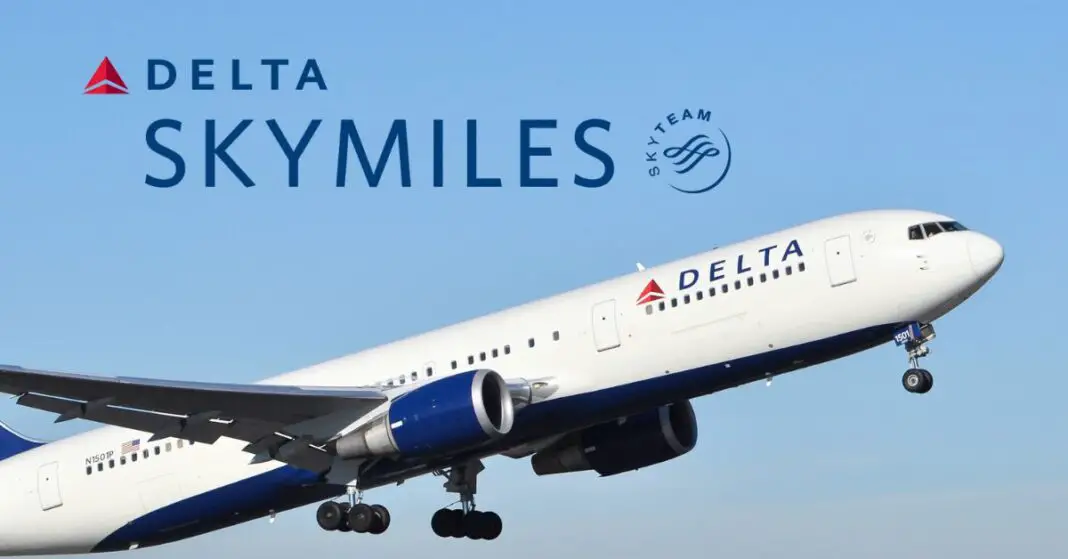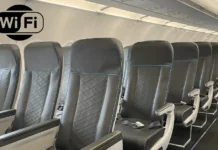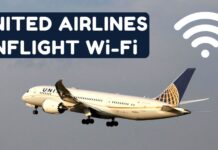If you are a frequent flyer or a business that does a significant amount of travel, leveraging a good frequent flyer program can lead to considerable benefits. Delta Airlines, with its well-renowned SkyMiles program, stands as a compelling option to explore.
Included in this blog is a deep dive into SkyMiles, understanding its structure, point-earning system, and ways to redeem them.
Table of Contents
Understanding the Basics of Delta’s Frequent Flyer Program
In the aviation industry, customer loyalty is a competitive playing field. One airline that has truly mastered the art of winning customer loyalty is Delta Air Lines, through its incredible frequent flyer program, SkyMiles.
Delta’s SkyMiles, unlike other frequent flyer programs, does not have a miles expiration policy. Accumulated miles are cash in the pockets of SkyMiles members, redeemable at any point in time. This revolutionary approach to mileage points demonstrates Delta’s understanding of the customer’s desire for flexibility and long-term value from these programs.
Another significant aspect of the SkyMiles program is the vast array of redemption options available. Beyond upgrading flight tickets, the miles earned can be used for retail purchases, hotel accommodations, dining, and even car rental services. This broad spectrum of choices enhances customer’s overall experience, providing more diverse selection avenues to spend accumulated miles.
Delta’s unique Medallion Status adds yet another layer of sophistication to the program. This system categorizes members into tiers – Silver, Gold, Platinum, and Diamond.
The higher a passenger’s tier, the more benefits they unlock. This spectrum of benefits ranges from priority boarding, extra baggage allowances, and seat upgrades to exclusive lounge access. This structured, tiered approach works as an incentive program, compelling regular customers to elevate their status and consequently increasing loyalty towards Delta.
Additionally, Delta SkyMiles American Express Cards offer lucrative sign-up bonuses and high earning rates on Delta purchases. These cards help form a mutually beneficial triangle of loyalty between customers, the airline, and the bank, driving consumer behavior and ensuring ongoing engagement with the brand.
Another strategic advantage lies in Delta’s extensive network of partner airlines, allowing SkyMiles members to earn and spend miles globally. This strategic partnership ensures customer loyalty transcends beyond Delta’s network and extends to the broader SkyTeam Alliance.
In conclusion, Delta’s SkyMiles program reflects the airline’s firm grasp on customer loyalty and satisfaction. Was it its vast redemption possibilities, Medallion Status, strong bank partnership, or broad alliance network, SkyMiles stands as solid proof of Delta’s commitment to continuous innovation in upholding customer loyalty and enhancing the flight experience. Delta doesn’t simply understand the game, it sets the rules.
Gaining from Business Travels
Businesses and entrepreneurs constantly aspire to unlock innovative strategies for growth and customer retention. Enter Delta Airlines with its frequent flyer program, SkyMiles, primed as an optimal and multifaceted tool to galvanize corporate growth and robust customer relationships.
A pivotal aspect of SkyMiles lies in its business-centric features. This includes Delta’s SkyBonus program specifically designed to reward small-to-medium enterprises (SMEs).
SkyBonus allows organizations to earn points on flights with Delta and its affiliates while still allowing the individual flyer to accrue personal SkyMiles. This double-dipping benefit can contribute to significant savings and an indirect incentive for companies to prioritize business travel.
But how to morph a frequent flyer program into a client or employee engagement tool? Utilize those SkyMiles to demonstrate appreciation and foster loyalty.
Companies can redeem miles to reward top-performing employees or loyal customers with flight upgrades or even holiday packages, consequently emphasizing the company’s investment in their well-being and success. Such gestures not only strengthen business relationships but also create positive word-of-mouth, contributing to brand-building.
Delta’s frequent flyer program is also instrumental in yielding insights about customer behavior and preferences. The data accrued through SkyMiles interactions offer granular customer insights that can fuel personalized marketing initiatives. Leveraging these data insights will enable businesses to make informed decisions about partnership strategies, promotional offers, and service enhancements.
Connecting with the affluent customer base of a renowned global airline can further provide businesses, primarily startups, a robust platform for networking and brand exposure. Opportunities to engage with this extensive network through SkyClub access, business conferences, or charity events can help entrepreneurs forge potential partnerships and open doors for new investments and collaborations.
Last but not least, businesses need to acknowledge Delta’s commitment to minimizing environmental impact. The airline’s eco-responsibility pursuits, such as carbon offset programs and eco-skies alliances, resonate with the growing trend of corporate sustainability.
Affiliation with such initiatives aligns companies with consumers’ escalating demand for responsible business practices which can enhance reputation and drive brand loyalty.
Comparing Competing Airline Programs
In business, it’s all about strategic relationships and calculated alliances. Delta’s SkyBonus program is a testament to this very mantra. This program, designed specifically for small-to-medium enterprises (SMEs), offers a refreshing perspective on fostering business growth.
Delta understands the power of keeping fellow businesses on board, literally and metaphorically. Each business trip using Delta accumulates points, which are redeemable for a myriad of benefits ranging from free flights to upgrades: luxury in the air!
Regarding loyalty, Delta doesn’t forget its most precious asset – its employees. SkyMiles can be used to recognize the hard work and dedication of employees.
Businesses can gratify their staff with Delta’s first-rate travel experience for leisure or professional growth. The genius of this approach is that it cultivates employee loyalty, which is just as essential as customer loyalty, proving that Delta’s innovativeness truly transcends all stakeholder levels.
Delta has capitalized on one of the most valued commodities in the business world – data. By leveraging the massive pool of SkyMiles data, it precisely understands consumer behavior. It’s no longer about one-size-fits-all marketing. It’s about personalized and targeted marketing, which is the key to winning and retaining customers in the current business landscape.
Moreover, when associating with Delta, businesses indirectly align with an extensive range of consumers and fellow businesses. Thanks to the vast network of SkyMiles members worldwide, your brand taps into a wider audience, giving a unique boost to brand exposure.
Moreover, with Delta’s global partner airlines, businesses are not confined within a boundary; instead, they have vast opportunities to spread their wings across the globe.
Finally, portraying Delta as a paragon of corporate sustainability cannot be overlooked. Delta is not just about flying high; it’s about caring for the environment while doing so.
The airline is making robust efforts to minimize environmental impact, signaling an unyielding commitment to sustainability. Associating with Delta consequently means endorsing a sustainable future, which has become an increasingly significant factor for businesses and consumers alike to choose their preferred brand.
In a nutshell, when comparing Delta with its competitors, it’s evident that Delta’s frequent flyer program is not just about flying. Instead, it’s an all-encompassing, innovative framework targeting business growth, customer retention, employee satisfaction, personalized marketing, brand exposure, and corporate sustainability.
Undoubtedly, Delta stands out as a stalwart player, constantly raising the bar in the increasingly competitive aviation industry.
Innovative Strategies for Maximizing SkyMiles
In the world of business travel, every savvy entrepreneur must maximize their opportunities for rewards, benefits, and cost-effective strategies. Therefore, aiming for optimized gains from Delta’s celebrated SkyMiles program should be a top priority.
American Express partnership aside, one often overlooked method to rapidly accrue SkyMiles is through tie-ins with hotel and car rental companies. Major chains such as Marriott and Hertz have Delta SkyMiles offers on regular rotation. Staying in partnered hotels or opting for a partnered car rental service on your business trips can see a rapid and substantial uptick in your SkyMiles balance.
Having an eagle eye for promotions and earning boosts also proves valuable. Promotions can offer significantly heightened mileage gains on specific routes, or when using certain services. Notably, those miles are not limited to flight purchases. The vast outreach of Delta’s initiatives, even sectors like online shopping and dining, can award you with miles, making it a rewarding leisure investment.
For small-to-medium enterprises (SMEs), SkyBonus is the light at the end of the tunnel. However, one pioneering strategy is to join forces with other SMEs to pool in the required annual spending amount. This hack in the system would make the program more accessible to SMEs, and benefit both parties involved.
The SkyMiles Marketplace showcases another perfect platform for boosting your miles. Offering a vast range of products and exclusive experiences, it moves beyond just being a redemption platform to a miles-earning entity.
The SkyMiles program abounds with data, and enterprises are astutely leveraging this plethora of information to conduct personalized marketing. These strategies aim to tailor promotional material to suit individual customer’s preferences, resulting in better engagement and higher sales.
In the more significant scheme of things, demonstrating a commitment to social responsibility can also be achieved by donating your miles. Delta allows SkyMiles members to donate their miles to a host of charities, enhancing not only Delta’s brand but also the generosity and commitment to community welfare of an individual or company, potentially leading to a beneficial brand perception in the market.
At its core, optimizing your gains from the SkyMiles program is about innovative thinking and a willingness to exploit the system’s flexibility. Executing the strategies mentioned in this article, combined with patient monitoring of your SkyMiles account, can provide benefits that can thrust any business or individual into lean and efficient operations.
What frequent flyer program is Delta part of?
Delta operates its frequent flyer program known as SkyMiles, distinct from larger alliances such as Star Alliance, OneWorld, or SkyTeam. This setup means that any miles accrued on Delta flights and with its affiliated partners are deposited directly into your SkyMiles account.
Importantly, these miles can only be used for redeeming awards on Delta and its partner airlines, excluding those associated with different alliances.
What is the difference between frequent flyer and SkyMiles?
There’s no substantive distinction between “frequent flyer” and “SkyMiles.” While “frequent flyer” is a broad term encompassing loyalty programs where points are earned through air travel, “SkyMiles” is the specific designation for Delta Airlines’ frequent flyer program.
Is Delta frequent flyer program free?
Yes, Delta’s frequent flyer program, SkyMiles, is free to enroll in. Individuals can easily create an account online or during their initial Delta flight, and they can promptly begin accumulating miles for qualifying activities.
How many frequent flyer miles do you need for a free flight on Delta?
The quantity of Delta SkyMiles required for a complimentary flight is largely influenced by factors such as flight specifics, award availability, and promotional deals.
While domestic economy flights can be secured for as little as 6,000 miles and international ones for 25,000-60,000, it’s important to anticipate higher mileage requirements for premium cabins or during peak seasons.
How many Delta SkyMiles do I need to fly to Italy?
The number of Delta SkyMiles needed for a flight to Italy can vary based on factors such as the departure city, the class of service, the time of booking, and the availability of award seats.
Generally, for an economy class ticket, you might find options starting around 30,000 to 60,000 SkyMiles for a one-way trip. Business class and first class tickets will require more SkyMiles, often ranging from 70,000 to 150,000 or more, depending on the factors mentioned earlier.





